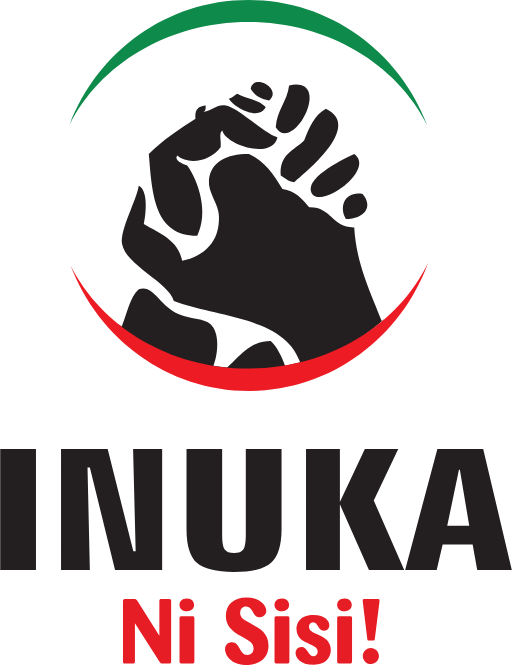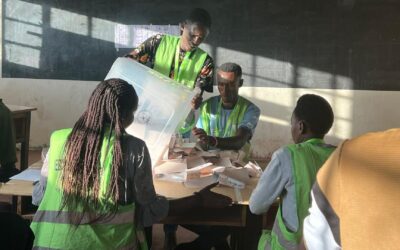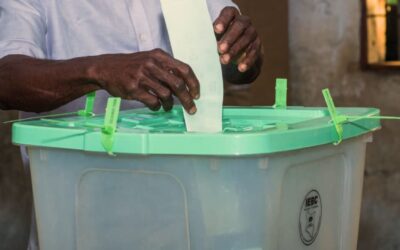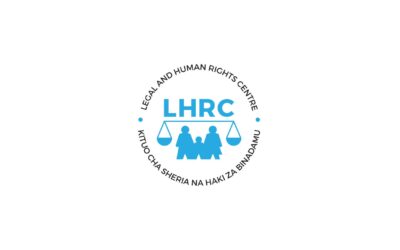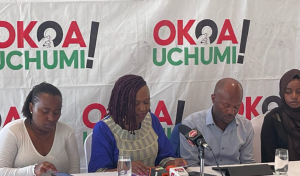
1. Economic Realities
Even as Kenya demonstrates resilience as evidenced by the Kenyan shilling strengthening by 20%,
rising from Ksh 162/USD in February 2024 to Ksh 129/USD and a drop in inflation from 9.6% in
September 2022 to 2.7% in October 2024, these have not translated into increased purchasing
power for the ordinary Kenyan. The government has many times referred to the decline in the price
of Unga. Also, fuel prices have come down globally and similarly for Kenya, but the pump prices
in Kenya remain high compared to other countries within the region.
It is undeniable that a lot needs to be done because prices for many other basic commodities in
Kenya have remained sticky upward thus the cost of living remains high. Moreover, the recent
introduction of new tax measures through the bills before parliament on the digital economy in
addition to the Housing Levy and Social Health Insurance Fund has reduced disposable income for
households and further exacerbates economic inequality by burdening taxpayers without clear
benefits and value for their taxes.
Kenyans do not feel any positive impact on their purchasing power despite the easing of inflation
due to the high cost incurred by households to access healthcare services and education.
2. Questionable Deals and Lack of Accountability
The recent issuance of a warrant of arrest in the United States of America for billionaire Gautam
Adani in relation to allegations of fraud and corruption has further exposed the dangers of Kenya’s
engagement in questionable deals. The approval process of the recent Public-Private Partnership
(PPP) contracts failed to consider ADANI’s documented history of misconduct. This oversight
raises serious questions about the integrity of the due diligence process, which was compromised,
and as a result, the interests of the Kenyan people were not adequately safeguarded. The State must
come clean on the liabilities caused by the cancellation of the deals and the details of the
investigative report that guided the decision to rescind the deals, as cited by the President. Such a
report must be made public and action is taken against any Kenyan official found culpable of
corrupt practices in the deals. We demand an investigation and audit of these deals by EACC and
the Office of the Auditor General respectively. Additionally, we note with concern the failure to
cancel the contracts on ICT infrastructure to support the contentious Social Health Authority
through Apiero Ltd which is running the stakes in the technology system for healthcare 59.9%.
Investigations by Nation media point to an attempt by Apiero to hide its true beneficial owners who
are seemingly Adani in efforts that show a lack of commitment to the efforts to fight corruption
through beneficial ownership.
3. Unsustainable borrowing and mismanagement of borrowed funds
The Kenyan government has accrued an alarmingly large and unsustainable amount of debt.
Approximately over 70% of the nation’s tax revenues and almost 50% of its budget are allocated
to servicing debt, far outpacing the aggregate funding allocations to services such as health,
education and social protection. This is evidence enough that the country is in a debt trap rather
than a pathway to a sustainable economy. The high levels of public debt have accumulated with
limited transparency and are contrary to constitutional principles of public finance management.
The recent development in the National Assembly proposing to replace the 55% debt anchor with
a blank check borrowing spree is a red flag pointing to unsustainability and lack of a management
strategy that safeguards our sovereignty and dignity as a nation. Oversight reports point to massive
irregularities in state-funded projects. The Inflation in Kenya is driven primarily by very high and
irregular expenditure by government and not by the citizens and private companies. Several of
those projects are cited in Auditor General reports suggesting budgeted corruption including
through ghost workers and inflated cost of public officials as exposed by the controller of budget.
The Eurobond remains a scar of corruption that affects our economic landscape with no clear
information of where that painful debt was invested.
4. Corruption
Despite repeated promises to tackle corruption, the fight against graft remains largely rhetorical.
We identify that in a follow-up to his speech, the President on July 11, 2024, disbanded his cabinet
and vowed to “deal with the burden of debt, raise domestic resources, expand job opportunities,
eliminate wastage and unnecessary duplication of a multiplicity of government agencies and slay
the dragon of corruption”. Despite this, corruption scandals are continuously draining public
resources, without any consequences on the implicated individuals. The opacity in spending has
created opportunities for corruption, all while the drain on public resources further destabilizes the
country’s finances and ability to address economic and social distress through various mega
corruption deals including the emerging concerns in the housing project, the now revoked Adani
deals, the irregular diversion of funds to the Haiti mission, the SGR contracts which still costs
Kenya taxpayers the highest amounts in debt servicing and so far at least two penalties due to
default among others. Instead of increased investigation, prosecution and recovery, Kenyans have
been served with withdrawal of corruption related cases, non-prosecution of emerging ones and
appointment of people implicated in corruption scandals.
5. Misplaced priorities in the allocation of public funds
Deployment of Kenya policemen to Haiti. National Treasury reports indicate that Kenya has spent
Sh2.1 billion taxpayers’ money on the Haiti peace mission despite promises that public funds would
not be used for it. The fate of the Kenyan-led mission now hangs in the balance of the cash crunch
in the face of objections by China and Russia, both of whom are members of the powerful UN
Security Council. We quip that the money diverted would have significantly aided the education
sector whether in funding higher education or preparing classrooms for children accessing basic
education who ultimately will bear the burden of repaying debt incurred by the current government.
Our Demands
A. To the President and the Executive we call for:
1. The stepping aside of all senior state and public officials who were involved in the contracting and
defending of the Adani deals immediately if they have a conscience that cares about the national
interest of Kenyans. If they don’t resign, we call on the president to dismiss those who hold
executive powers.
2. The immediate review of all agreements and investments linked to the Adani Group, particularly
in critical sectors like Energy, Infrastructure and review of other deals that jeopardize Kenya’s
sovereignty, including the Social Health Insurance fund. Full disclosure of the terms of these
agreements and accountability for any improprieties and holding of all the members of the
executive who were involved in this irregular contract and who continued to defend it even as
Kenyans flagged fundamental issues of viability, transparency and accountability.
3. All Public Private Partnerships and Private Initiated Partnership processes and agreements be made
public and strictly follow the laid procedures of the law. Value for the country and long-term
implications must be considered.
4. The implementation of policies that lower the cost of living, provide equitable access to basic
services, and prioritise vulnerable groups including reverting to the national health coverage
scheme that has certain and more benefits to the majority of Kenyans especially for chronic
ailments. At the heart of reducing the cost of living is the need to reduce the cost of fuel which
remains the highest in the region and rethink the increase in the petroleum levy recently introduced
by parliament.
● The government led by the president to stop paying lip service in calling out the Office of the
Director of Public Prosecution (ODPP) for the collapse of corruption cases when the majority of
the beneficiaries of the case withdrawals and ‘prosecution aided’ acquittals have been appointed in
his administration. The president and all members of the executive should stop interference with
the enforcement agencies, and let them perform their investigative, prosecution, adjudication and
asset recovery mandates as prescribed by the Constitution.
● The executive to publish the list of officials they have forwarded for investigation under their
internal audit function for prosecution for implication in loss, theft and misappropriation of funds.
The government must prioritise recovering and reinvesting stolen public funds in critical sectors.
● The government publishes the domestic debt register and the beneficial owners as they work on
addressing the high interest rates on treasury bills and bonds that see commercial banks continue
to make huge profits while access to credit shrinks across all sectors.
B. The Banking and Investment Sector:
We are putting Kenyan banks and the central bank on notice for the continued lending of the
government (Both national and county governments) at very high interest, crowding out the ability to
lend to private companies and individuals.
C. The Office of the Director of Public Prosecution:
1. To publish all cases touching on economic crimes that have been withdrawn especially since 2022,
their value and the reasons thereof with immediate effect.
2. To share the cases currently before court for recent economic crimes and their value.
D. To Parliament:
3. To commence impeachment proceedings against cabinet especially secretaries who steered the
now annulled contracts in the face of massive information and concerns by the people of Kenya
against them.
● To stop the proposed approval of continued excessive borrowing against the debt anchors by
undertaking measures to reduce expenditure and cut the interest charged on domestic debt which
makes the cost of domestic loans too expensive for the national interest and holistic development.
It has also made the government the preferred borrower and locks out the private sector hence
causing slow growth of the economy. Instead, parliament must focus on reducing expenditure by
all costs if we are to get on a path of economic recovery.
● To inquire from the treasury, in the face of corruption and illicit financial flows and the fact that
Gross domestic product is measured using expenditure and public expenditure is our highest, is our
GDP as estimated correctly placed at 16.5 trillion?
● To take their oversight and representation of the people role in community seriously and to
demonstrate their independence by taking decisive action in the interest of the people Kenya
whenever requested as was displayed during the finance bill 2024 and budgeting process as well as
Adani and cease being seen to or taking instructions from the president as displayed in the standing
ovation during the state of the nation address.
We urge the government to prioritise the issues outlined above and ensure that Kenya’s growth is inclusive,
just, and accountable to its citizens. The Okoa Uchumi Coalition remains steadfast in our commitment to
safeguarding the rights and dignity of every Kenyan.
Signed By:
1. The Institute for Social Accountability
2. Centre for Enhancing Democracy and Good Governance
3. Community Advocacy and Awareness Trust-CRAWN Trust
4. The Kenya Human Rights Commission
5. Transparency International Kenya
6. The Hummingbird Grassroots Centre
7. East African Tax and Governance Network
8. Bajeti Hub
9. Institute of Public Finance Kenya
10. Christian Aid International Kenya
11. Inuka Kenya Ni Sisi
